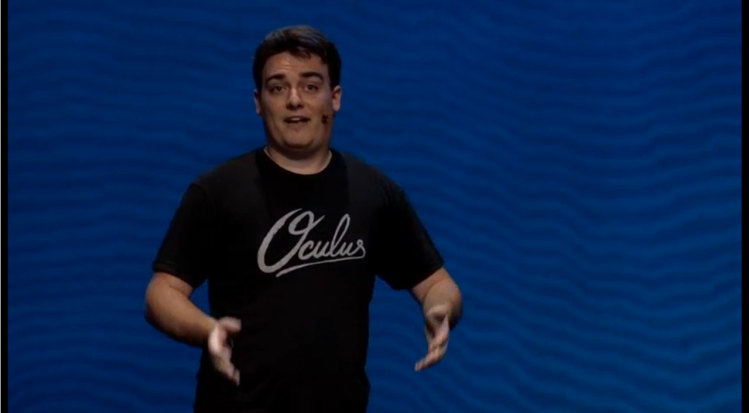If the future ever brings us virtual reality sommeliers, they may treat the Rift headset as one of their finest products.
Palmer Luckey, who founded Oculus VR and who is instrumental in the development of the Rift, used Twitter yesterday to explain that the price of his company’s head-mounted display may come as a shock to some consumers who want to jump into the metaverse. But that also led him to say that people will want the Rift over less-functional competitors, like the affordable Google Cardboard that works with mobile phones.
“The Rift is actually good,” Luckey told a fan on Twitter who asked about the Rift (which will likely sell for hundreds of dollars) competing against $20 cardboard VR kits. “Kind of like how fancy wine competes with muddy water.”
The Oculus executive is arguing that the quality of the experience you get from Rift is going to justify its price — especially when you compare it to sticking your phone in Cardboard. And while it isn’t fair to refer to these simple VR devices as “muddy water,” we can confirm that the gap between the average simulation on Rift is far superior to what you get from holstering your smartphone in a cheap holder.
Google has given away thousands of Cardboard kits to people, and this has given people an early taste of VR. But putting your phone in a holder doesn’t come close to using a Rift, which is built from the ground up to make you feel like you are in another place. That’s because phone sensors and screens are not yet optimized for virtual reality.
But all of that optimization is where the costs come in, and Luckey emphasized that point.
Reminder of something I have talked about before: VR will become something everyone wants before it becomes something everyone can afford.
— Palmer Luckey (@PalmerLuckey) December 24, 2015
The Oculus founder went on to say that technical advancements and scale will help bring down cost, but he also said that the first generation of hardware will go primarily to “early adopters.” That is seemingly because the device will have a high price, as Oculus strives to get the panels, optics, and other specialized hardware right.
Luckey is out making these points while many consumers are still waiting to hear the final price and release date for the Rift. Luckey implied that you shouldn’t look to the development kit, which the company sold for $350, as guidance for what to expect.
@PalmerLuckey The cost of development hardware that was sold at a loss using many off-the-shelf components is not a good comparison.
— Palmer Luckey (@PalmerLuckey) December 24, 2015
But if Oculus truly delivers the “fine wine” of virtual reality experiences, maybe it can get away with charging a high price for people who want both the best VR product and who value showing up early to the next big thing.
@WesleyYue Yes, because the Rift is actually good. Kind of like how fancy wine competes with muddy water.
— Palmer Luckey (@PalmerLuckey) December 24, 2015
VentureBeat's mission is to be a digital town square for technical decision-makers to gain knowledge about transformative enterprise technology and transact. Learn More

